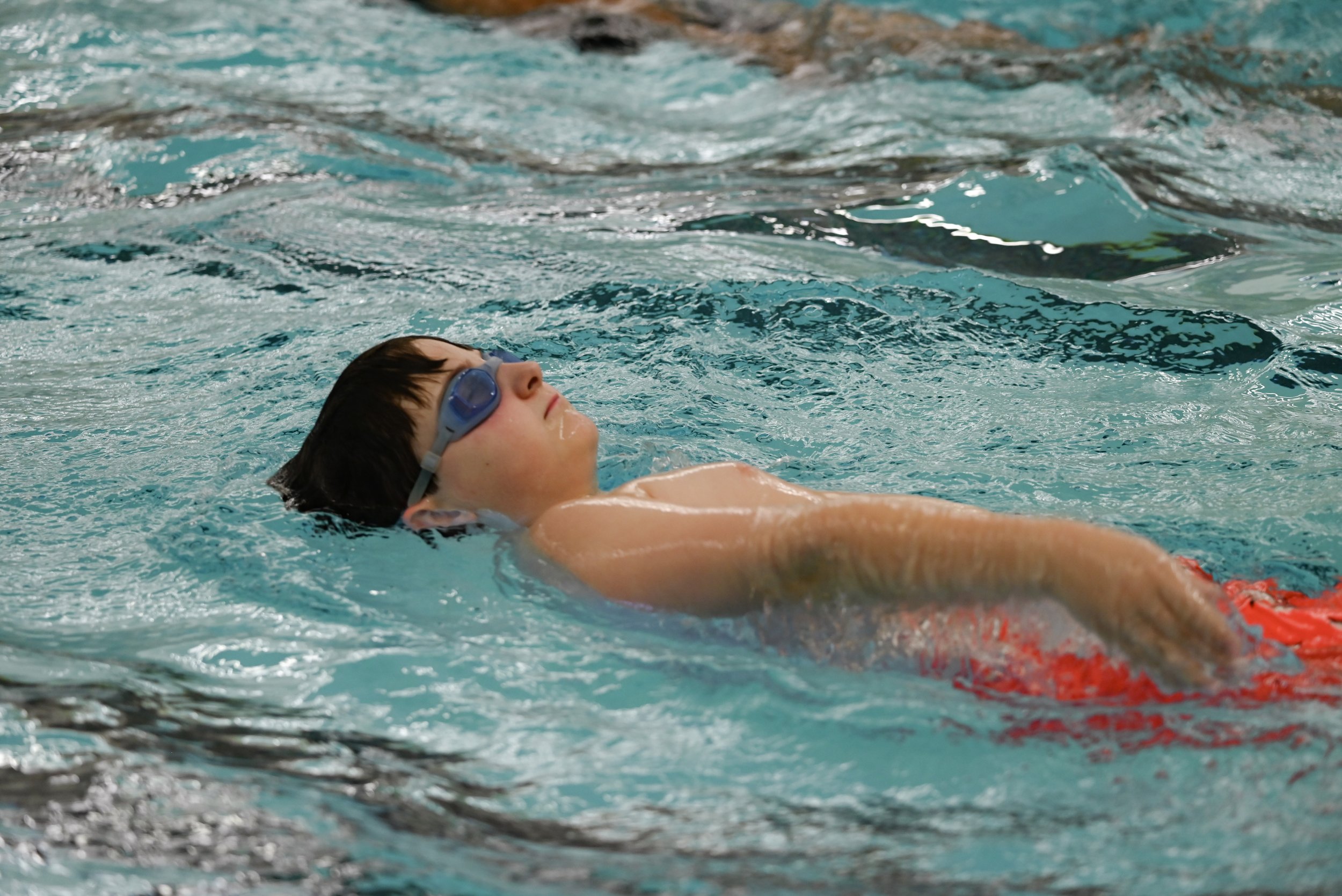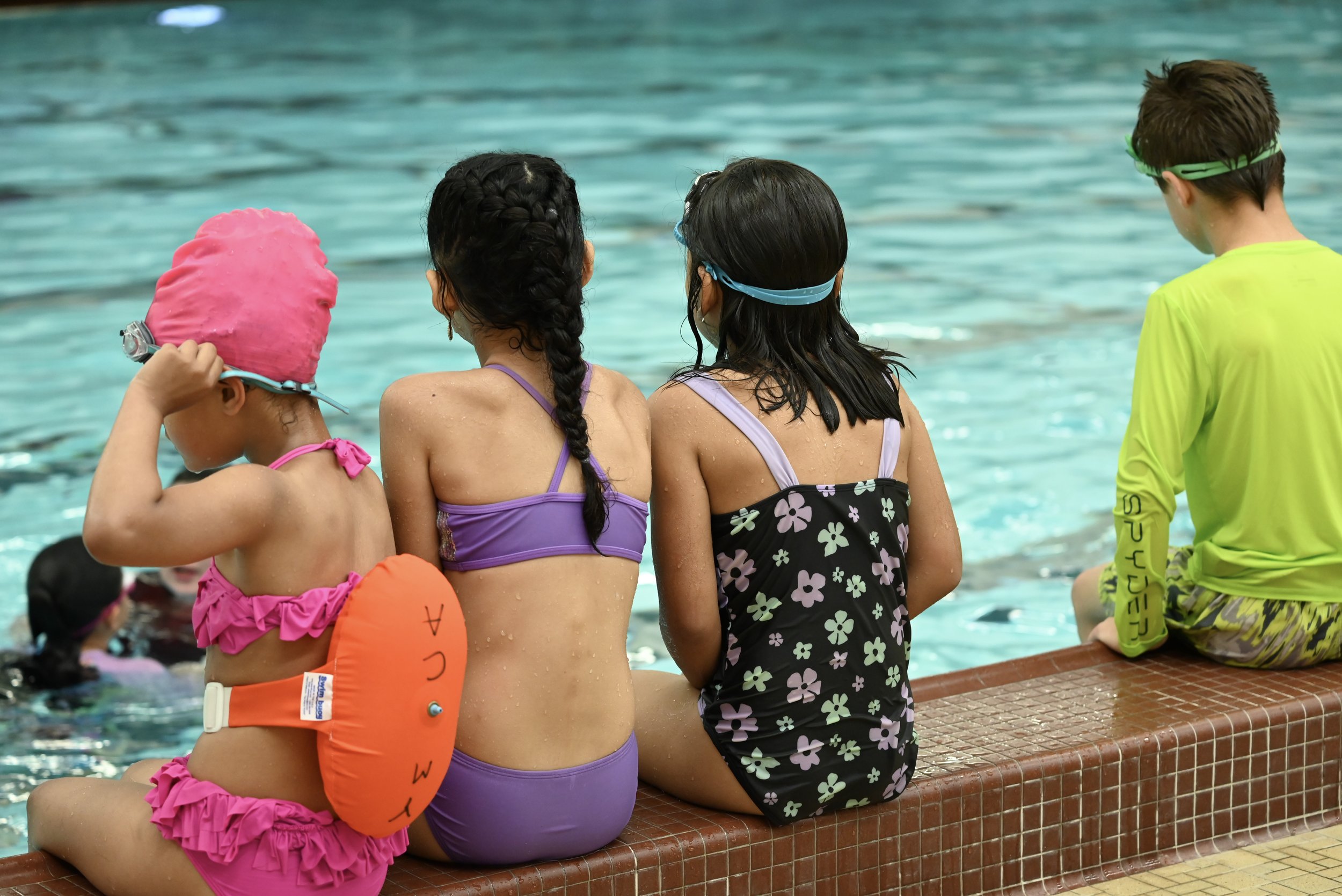YMCA offers swim classes with Police Athletic League | South Bend, IN
South Bend students met at Washington High School to learn how to swim with a partnership through the YMCA.





Building confidence in young swimmers: South Bend PAL and local YMCA partner in free class
June 20, 2024
SOUTH BEND — Water safety begins with developing a comfortability in water.
The Police Athletic League of South Bend partners with the YMCA of Greater Michiana to teach kids the basics of swimming or to fine tune their skills, so that if they're ever in a dangerous situation in water, they're able to implement techniques that can save their own life.
“We have a lot of children that come and this may be their first encounter with swimming,” Officer Jalen Lee, a school resource officer at Washington High School, said.
PAL doesn't have the resources within the police department to coach swimming, Lee said.
“We want to have this be taught by professionals,” he said.
The free class offers one-hour sessions for two weeks for kids to learn swimming techniques in a controlled environment. There's one lifeguard, three instructors in the pool and no more than 20 kids in the pool at a time.
Swimming is the only sport offered in the Police Athletic League in which it partners with another organization. PAL offers tennis, an all-sports camp, and track and field lessons for school-age kids throughout the week, taught by police officers and high school coaches who are skilled in the sports they teach. Experienced YMCA coaches teach kids swimming techniques to gain confidence in their abilities in the water.
“Our overall goal is water safety, which is making sure they’re comfortable floating on their backs,” swim instructor Vanya Ruppart said.
It’s her fourth year coaching through the YMCA-Police Athletic League partnership.
“Otherwise, it’s about helping the kids have fun and gain confidence in themselves,” she said.
Teaching by ability
The 10 a.m. session was split into two groups: beginner and advanced.
The beginner class learned how to tread water. Instructors Ruppart and Julian Toczylowski, demonstrated "pushing with your palms" before they worked with each kid one at a time, providing individual attention in their lesson.
Ruppart helped a girl swim deeper into the pool to practice kicks.
"Row, row, row your boat right in the water," Ruppart sang, encouraging the girl to make long big kicks, rather than fast little ones.
"Big kicks," she repeated. "Use your arms and legs."
Ruppart helped the girl swim back to the wall before teaching another kid the same techniques.
Individual lessons allow instructors to give more one-on-one feedback, Ruppart said. As the swim instructors get to know each child, one-on-one lessons are also safer.
Esmerelda Mendoza appreciates the individual instruction her daughter receives in the pool.
"It makes them feel like they're doing a good job and that they are important," Mendoza said.
For Mendoza, it's important for her four-year-old daughter, Annalise, to learn how to swim and to interact with other kids. It's something she loves and looks forward to, Mendoza said.
"She wants to wake up early and get her things ready," she said.
On other side of the pool, Eden Gray was teaching back strokes. The swimmers practiced rotating their arms in each stroke, moving from the three-foot shallow end to mid-pool at four-feet deep. Then they freestyle swam back.
Gray helped a student position his body.
"Chin back," she coached, tapping the back of his head. "OK good," she cleared him to go.
"When your chin dips, your whole body dips," she told them. "Really keep your head back as best as you can."
Gray explained that people swimming often don't notice when they're getting tired until their burnt out and start to panic. When a swimmer rolls onto their back and floats, it allows them to keep swimming.
Building confidence in water
At the end of the two-week session, instructors teach a water safety day where kids learn practical skills— using a life jacket and discussing the importance of staying safe around the water.
Janelle Foster brought her seven-year-old son, Edwinn, to learn safety around the pool. Edwinn attended swim lessons through PAL last year and has grown since then, his mom said.
Foster hopes through his lessons, Edwinn can feel like knows what he's doing, "so that he can do more, have more fun and have more freedom in water instead of being tied to mom and dad," she said.
The family-type atmosphere created in the Police Athletic League focuses on building a kid's self-esteem. They build up the confidence of kids who might be afraid or think that they can’t do it because they haven’t really been exposed, PAL coordinator Capt. Dave Herron said.
"I might be a little biased, but this is one of the best programs here,” he said. “It keeps kids busy learning life skills through athletics. Everyone’s having fun and learning from each other."